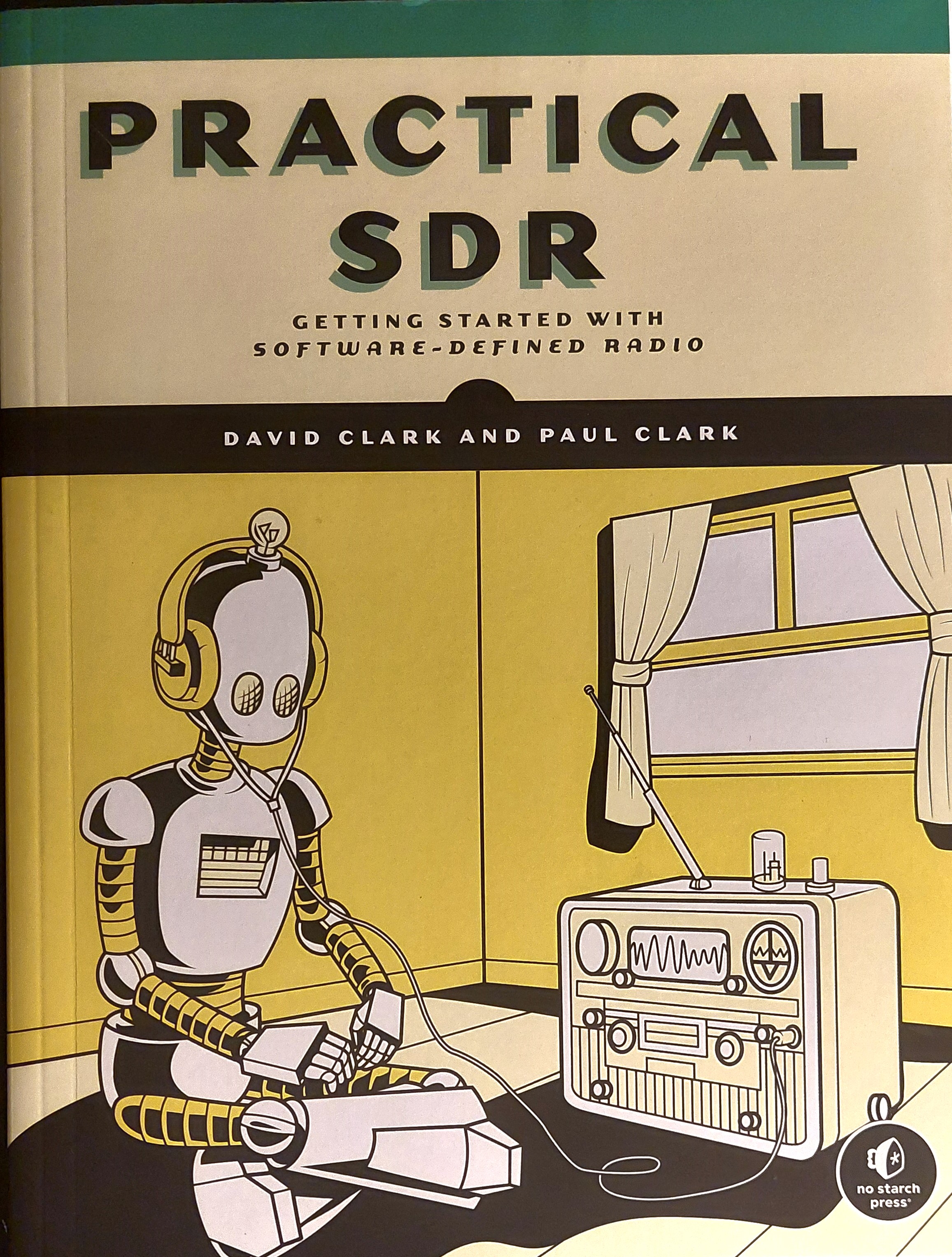Bookshelf: Practical SDR
2025-08-11

From the Shelf:
- D. Clark and P. Clark, Practical SDR. No Starch Press, 2025. (https://nostarch.com/practical-sdr)
Practical SDR is one of the few books that I’ve used at work and then purchased as a personal copy. I’ve recommended several No Starch Press books, including Python Crash Course , which I’ve used to help outline a series of mini-lectures on getting started with Python. The series has proven to be beginner friendly over a broad range of topics, and they even offer some good reference materials for intermediate readers.
This book is not made for me. I’ve been using software defined radios with GNU Radio since roughly 2020. I’m most familiar with the HackRF One, and I’ve used the HackRF/GNU Radio combo on everything from Ubuntu, to Kali, to Windows (with some elbow grease), to even running on a Raspberry Pi for a conference project. I’ve also got plenty of signal modulation and wireless TX/RX experience (about 10 years or so by now), so I’m not a beginner…..I still really, really like this book as a quick start guide and something that is very accessible to the students I teach. Am I going to read the whole thing? Probably not. I’ve read 4 chapters and skimmed another 2. I’ll probably read one more before the next time I give a mini-lecture on wireless data capture. This book is not made for me, but I’m going to tell everyone who wants to get started on this topic about it because it is so accessible and covers so many of the “I feel like this is a stupid question” questions that cause students to get stuck because they’re too afraid to ask.
I also like the examples. They’re structured in a way that is easy to understand, and the diagrams make it easy to follow along. The GNU Radio examples (Chapter 3 onwards) are done from a Linux point of view, which is understandable. But that’s not the barrier to entry for technology and other gadgets that it used to be. The nature of the block diagrams used in GNU Radio means that it can be replicated in Windows (there’s no need to translate Bash to Shell scripts, for instance), and even if not every example translates over properly, it is possible to run GNU Radio from WSL. Or put it on a Raspberry Pi.
#bookshelf, #antennas, #sdr
